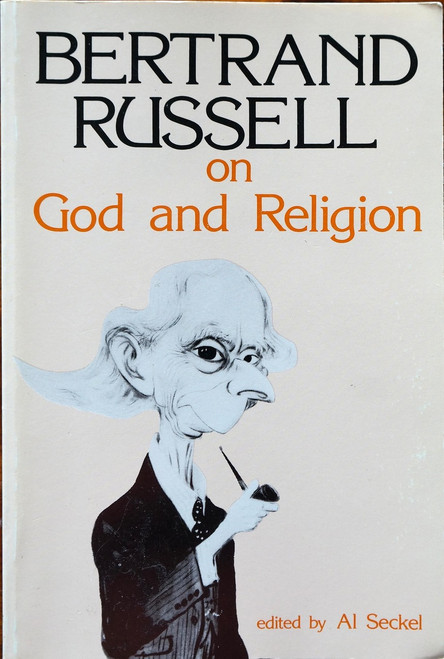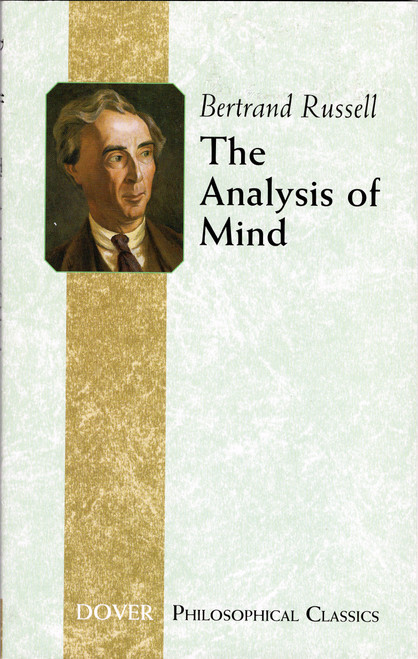Among the many thinkers and writers of contemporary Western culture, Bertrand Russell stands out as one of the most brilliant and prolific. The range of his inquirng mind is virtually without parallel, and never more sharp than when it seeks to critically analyze cherished popular beliefs respecting God and religion. Al Seckel has rescued many of Bertrand Russell's best essays on religion, free thought, and nationalism from their resting places in obscure pamphlets, hard-to-find books, and out-of print periodicals to form a superb compilation. No current volume captures the scope and depth of Russell's thinking on the subject of religion quite like Bertrand Russell On God and Religion.
About the Author
Bertrand Arthur William Russell, a prolific writer and considered the cofounder of analytic philosophy, greatly enhanced the fields of mathematics and logic.
Born to Viscount Amberley and Katherine, daughter of the 2nd Baron Stanley of Alderley, at Trelleck on May 18, 1872, Russell was orphaned by age four. Raised by his grandparents, Lord and Countess Russell, young Bertrand received a thorough education from a series of tutors, achieving a perfect knowledge of German and French.
In 1890 Russell attended Cambridge University, where he studied philosophy and mathematics under such monumental figures as John McTaggart and Alfred North Whitehead. Along with the latter, Russell composed the three-volume Principia Mathematica (1910–13), a momentous work that advanced new theories in the study of logic. By introducing such ideas as type theory, Principia Mathematica paved the way for other logicians like Kurt Gödel, among others, to build their own mathematical theories. The authors planned a fourth volume on geometry but never completed the project.
Analytic philosophy attempts to clarify specific philosophical problems using epistemology and logic. Incoherence and ambiguity seemed to dominate much philosophical thought, and Russell, along with G. E. Moore, fought for clarity and precision in language. Russell employed logic—which worked so well in its application to mathematics—to philosophy, greatly influencing the history ofthe subject as well as epistemology, metaphysics, and political theory.
Russell divorced his first wife, Alys Smith, in 1921 and married Dora Black, with whom he had a son and daughter, Conrad and Katherine. He supported his family throughout the decade mainly by writing on topics as diverse as physics and education in terms that the general reader could understand. Along with his wife, Russell founded an experimental institution called the Beacon Hill School in 1927.
Concern for general social issues dominated much of Russell’s public life. In the early 1900s, he advocated suffrage for women. During World War I, he was thrown in jail for penning a pacifist pamphlet. Before the Second World War, he favored a policy of appeasement, but, by 1941, he recognized the necessity of Adolf Hitler’s defeat in order to preserve democracy. Throughout the 1950s and 1960s, Russell protested the Korean and Vietnam conflicts as as well as the development of nuclear arms.
Russell’s strong beliefs on social matters sometimes clashed with his academic life. In 1916 he was dismissed from his post at Trinity College, Cambridge University, after being jailed for writing a pacifist pamphlet. In Why I Am Not a Christian (1927), Russell described religion’s detrimental effects and later argued for agnosticism in A Free Man’s Worship (1903). Public outcry forced a court to revoke his contract with the City College of New York, deeming him morally unqualified to teach in 1940. Ironically, much of Russell’s moral outlook was, in fact, based on his paternal grandmother’s Christian influence—she admonished him to embrace Exodus 23:2, “Thou shalt not follow a multitude to do evil,” which Russell admitted shaped him throughout his life. Still, Russell remained an agnostic—like his father—who leaned toward atheism.
In 1949 Russell was awarded the Order of Merit and the Nobel Prize in Literature the next year. Russell died on February 2, 1970, of influenza at the age of ninety-seven.
His many works include Principles of Mathematics (1903); Principles of Social Reconstruction (1916); Roads to Freedom: Socialism, Anarchism and Syndicalism (1918); The Problem of China (1922); Power: A New Social Introduction to Its Study (1938); Authority and the Individual (1949); and Unpopular Essays (1950).
Al Seckel is a member of the Bertrand Russell Society and has lectured extensively on Russell's life and work.







